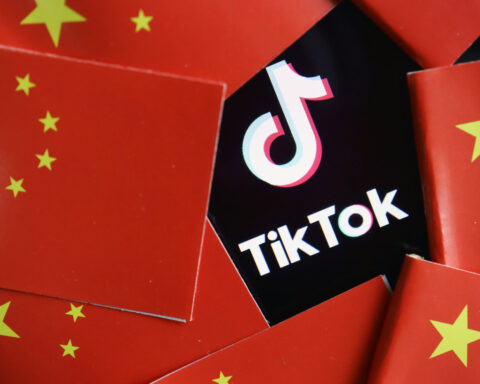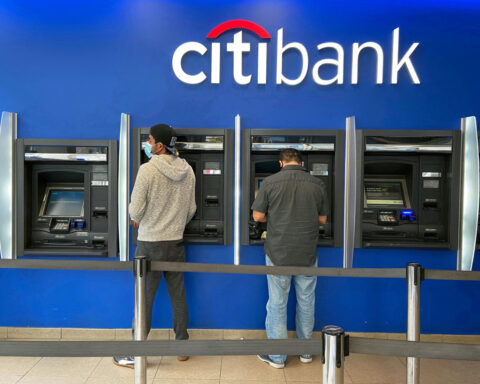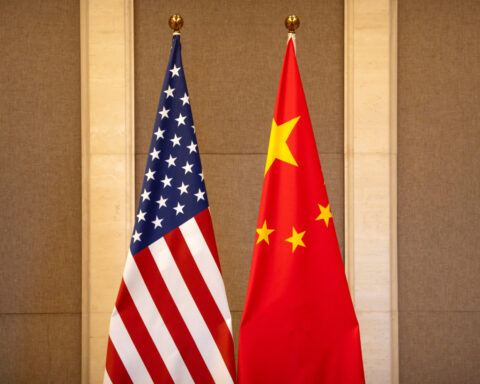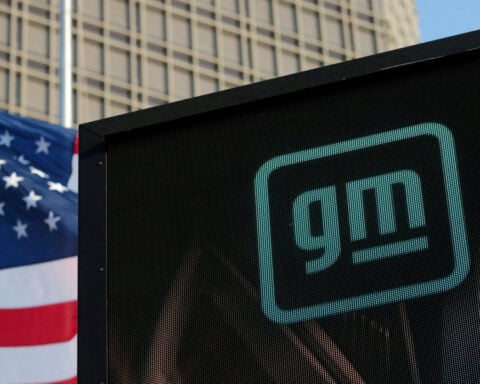LANSING, Mich. (AP) — The prospect of an autoworkers strike could test Joe Biden's treasured assertion that he's the most pro-union president in U.S. history.
The United Auto Workers is threatening to strike against General Motors, Ford and Stellantis, if tentative contact agreements aren't reached by 11:59 p.m. on Thursday. That could reshape the political landscape in the battleground state of Michigan and potentially unleash economic shockwaves nationwide.
The auto industry accounts for about 3% of the nation's gross domestic product and though union leaders say they are mulling strikes at a small number of factories run by those automakers, as many as 146,000 workers could eventually walk off their jobs. The effects would be most immediate in Michigan and other auto job-heavy states such as Ohio and Indiana. But a prolonged strike could trigger car shortages and layoffs in auto-supply industries and other sectors.
“Anything that goes beyond a week, you’re going to start feeling the pain," said Marick Masters, a business professor at Wayne State University in Detroit. "And anything beyond two weeks, that’s when the effects start to compound."
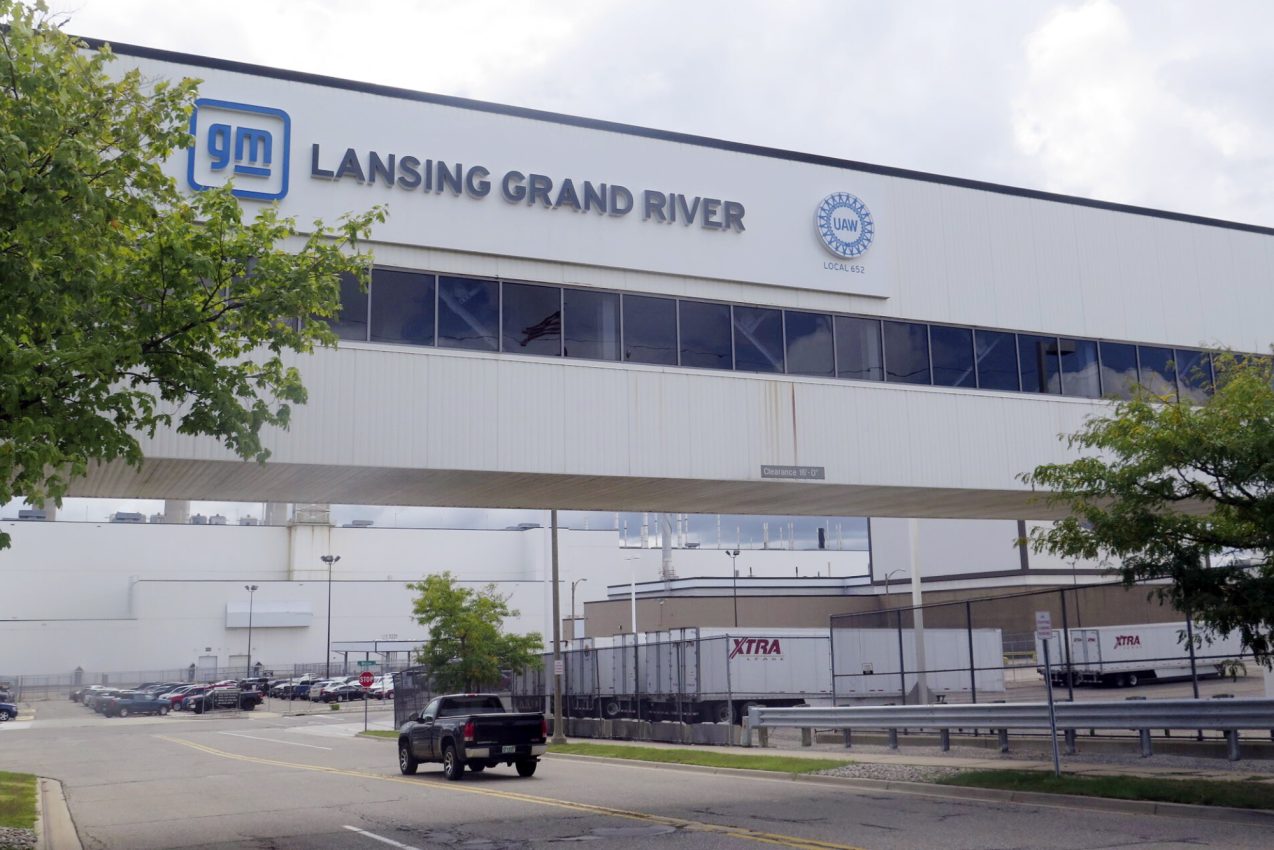
Doc Killian, who has worked in a Ford assembly plant in Wayne, Michigan, for 26 years, says he can no longer afford the cars he helps build, crystallizing how the nation's middle class has been squeezed.
“I think the American public as a whole realizes the impact that the American autoworkers have on the economy," Killian said. "If we suffer, the American economy suffers.”
Biden has built his political career around just such an argument, repeating the mantra that the “middle class built America, and that unions built the middle class.” His administration also has championed organized labor and promoted worker organization unabashedly, with Biden frequently proclaiming himself "the most pro-union president in American history.”
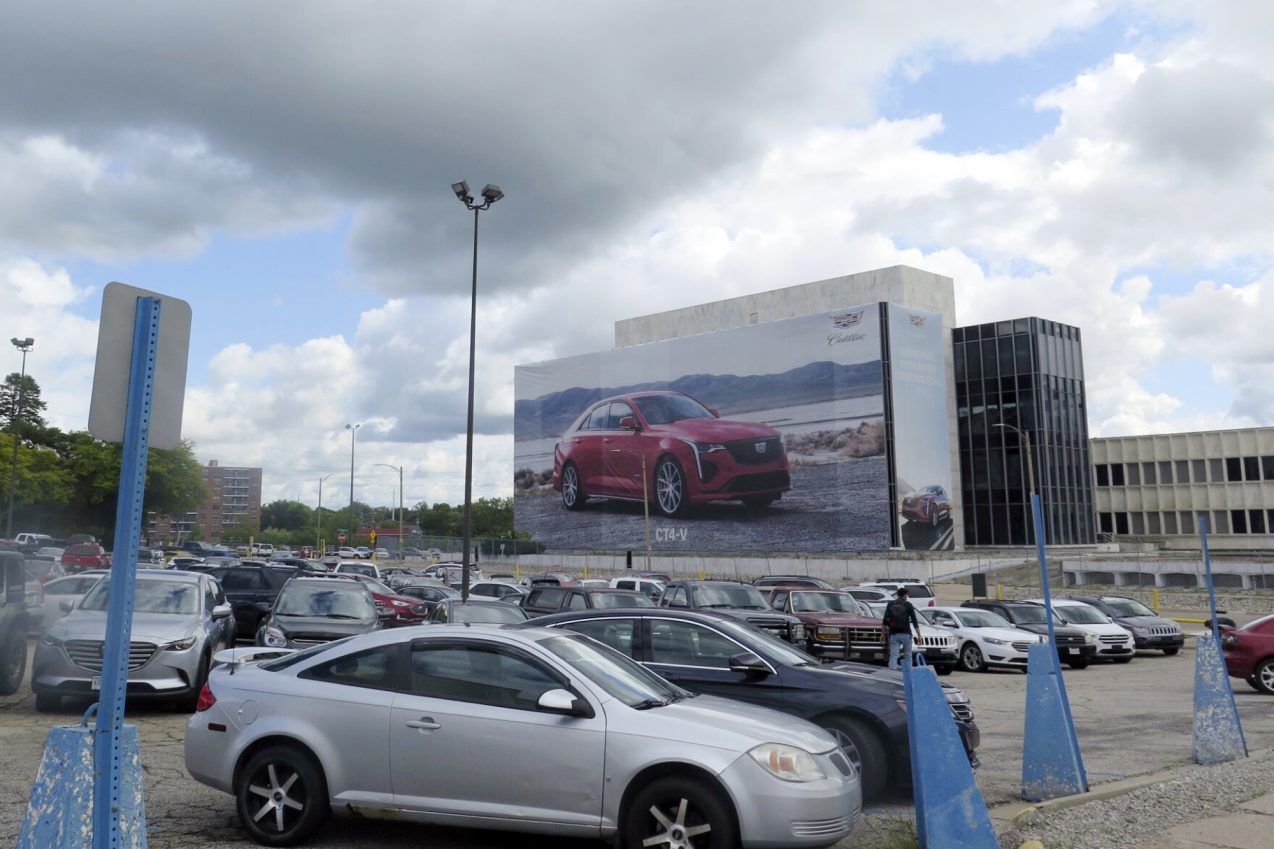
Still, Shawn Fain, who was elected president of the United Auto Workers in March after promising a more confrontational stance in negotiating with automakers, countered Biden's claim on CNN this week, saying, “I think there’s a lot of work to be done in that category.”
Fain has sought to broaden his argument beyond just autoworkers, telling a recent livestream that his union's demands are about “raising the standard for workers everywhere.”
“I truly believe that all of America will stand with us in this fight," Fain said.
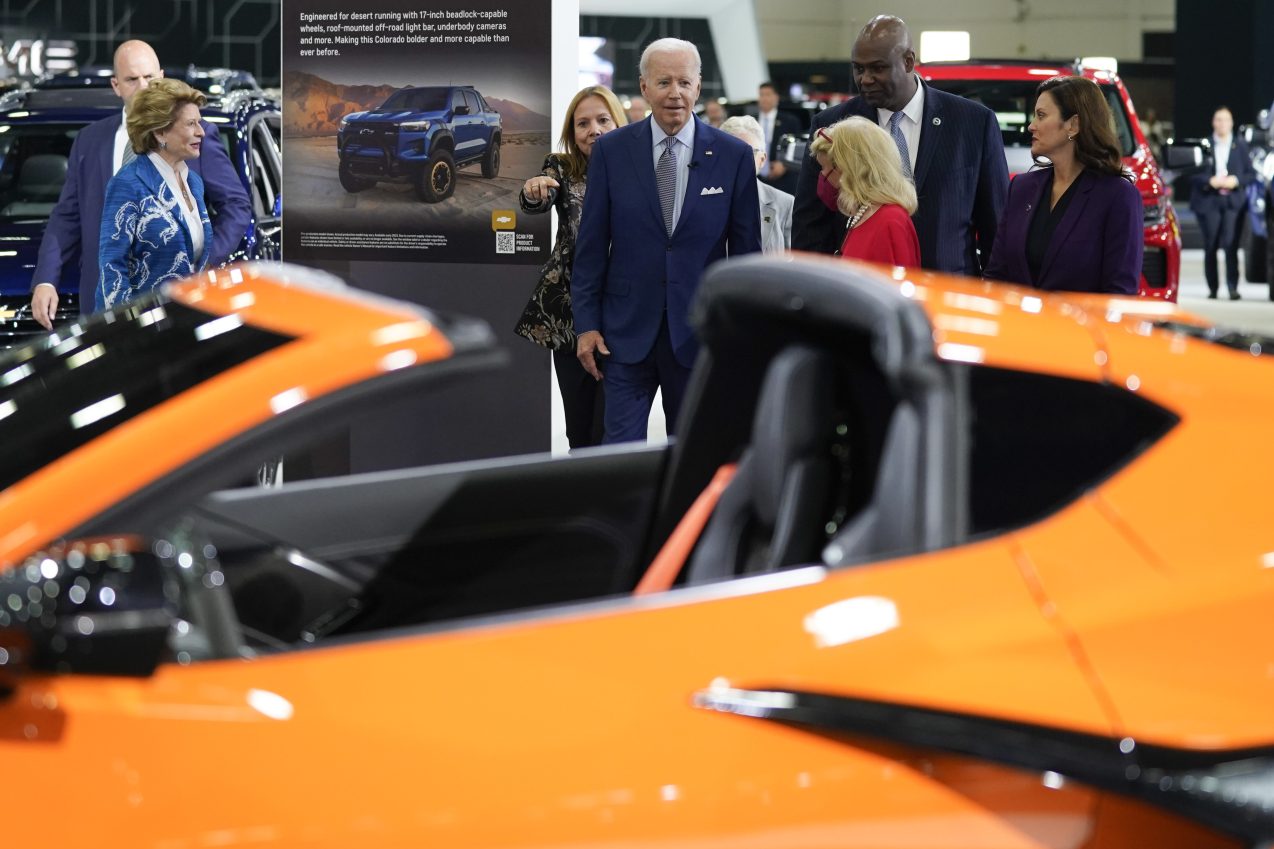
Biden also must contend with criticism from former President Donald Trump, the early leader in next year's Republican presidential primary, who is now pushing for the UAW to endorse him. Trump also has decried rules pushed by the Biden administration that require two-thirds of new passenger cars sold in the United States to be all-electric by 2032.
“Stand strong against Biden’s vicious attack on American labor and American auto workers,” Trump said in a statement Wednesday. “And if you want more jobs, higher wages and soaring pensions, vote for President Trump and have your leaders endorse me. If they don’t, drop out of the Union and start a new one that’s going to protect your interests right.”
But some union leaders and members have scoffed at suggestions that the U.S. not embrace efforts to reduce greenhouse gas emissions because manufacturers in China and elsewhere could rush in to produce electric vehicles if the U.S. does not. Fain, who has previously applauded the “transition to a clean auto industry” as long as autoworkers “have a place in the new economy,” said Trump was “not someone who stands for a good standard of living.”
Dave Green, a UAW regional director in Ohio and Indiana, said the former president “carries no credibility in my book” since “he did nothing to support organized labor except lip service.”
Green said he still considers Biden the most pro-union president of his lifetime. But he hopes the White House won’t stay neutral if there's a strike.
“We don’t forget,” Green said. “When you’re in distress, the people who are there supporting you — that goes a long way.”
Biden faced some criticism from labor groups last year when he urged Congress to approve legislation preventing rail workers from going on strike, fearing an upending of supply chains heading into the holidays. But, unlike with rail and airline workers, the president doesn’t have the authority to order autoworkers to stay on the job.
Nowhere will the political fallout of an auto workers strike be felt more than Michigan, which Biden won by nearly 3 percentage points in 2020. The state shifted further during last year’s midterms, leaving the governor’s office and Legislature Democratic-controlled for the first time in 40 years.
“The UAW is a major player in Michigan politics and if there is a strike, of whatever duration, it’ll have a political impact,” said Mark Brewer, former chairman of the Michigan Democratic Party. A strike, Brewer said, would leave Biden having “to speak and act consistent with his previous advocacy for working people.”
That might mean alienating other allies, though, since Biden has in the past received support from top U.S. automakers on the administration's rules over future sales. And Ray Curry, the former UAW president who was unseated by Fain, had worked with Biden in the past, even attending White House ceremonies.
Biden was nonetheless anxious to meet Fain given the pair’s shared working-class backgrounds, and they sat down together one-on-one in the Oval Office in July. The White House says it has been in regular touch with the UAW since then, and that overall communication is much better now.
“We are engaged regularly with the parties, and of course seek to support negotiations in any way that is helpful,” said Michigan native and longtime Democratic and Biden adviser Gene Sperling, who the president tapped as the administration’s point person on the autoworker negotiations. “But there is no substitute for the parties staying at the table 24/7 to come to what the president wants to be a win-win agreement.”
At Wednesday’s White House briefing, the chair of Biden’s Council of Economic Advisers did not answer questions about whether the president would support striking workers or whether he might step in to try and head off a strike. Jared Bernstein cited Biden’s record of backing unions and collective bargaining.
“The president’s been very much engaged,” Bernstein said of the auto negotiations.
Union support was instrumental in helping Biden overcome a slow start to clinch the 2020 Democratic presidential nomination, and it helped him win not just Michigan but Wisconsin and Pennsylvania as he defeated Trump in that year's general election.
Underscoring his commitment to organized labor, Biden's lone campaign rally since launching his reelection bid in April came in June in Philadelphia, when more than a dozen of the country's largest and most powerful unions endorsed Biden for a second term.
So many unions banding together for an unprecedented joint endorsement so early in the election cycle was meant as a show of strength for the president. Conspicuously absent from the event, though, was the UAW. Fain has since said that if Biden wants the UAW's 2024 endorsement, he'll have to earn it.
Other union leaders acknowledge what's at stake for Biden.
“Are strikes uncomfortable for an administration?” said Randi Weingarten, president of the American Federation of Teachers, which endorsed Biden’s reelection this summer. “Of course they are."
But, she said, “The administration believes in workers and believes that workers have the power to have a better life through collective organization and through collective bargaining.”
“This is not a soundbite to them," Weingarten said. "This is a belief system.”
___
Weissert reported from Washington. Associated Press writer Tom Krisher in Detroit contributed to this report.

 China blacklists four U.S. companies for involvement in arms sales to Taiwan
China blacklists four U.S. companies for involvement in arms sales to Taiwan
 China, Sri Lanka agree more investment and economic cooperation
China, Sri Lanka agree more investment and economic cooperation
 Brazil's Gol releases new five-year plan ahead of Chapter 11 exit
Brazil's Gol releases new five-year plan ahead of Chapter 11 exit
 Poland's leader accuses Russia of planning acts of terror against 'airlines over the world'
Poland's leader accuses Russia of planning acts of terror against 'airlines over the world'
 Portugal's growth likely accelerating, finance minister says
Portugal's growth likely accelerating, finance minister says
 Italy's Salvini faces calls to quit over late-running trains
Italy's Salvini faces calls to quit over late-running trains
 Look of the Week: Timothée Chalamet adopts London’s most stylish accessory
Look of the Week: Timothée Chalamet adopts London’s most stylish accessory
 Texas online porn age-verification law goes to US Supreme Court
Texas online porn age-verification law goes to US Supreme Court
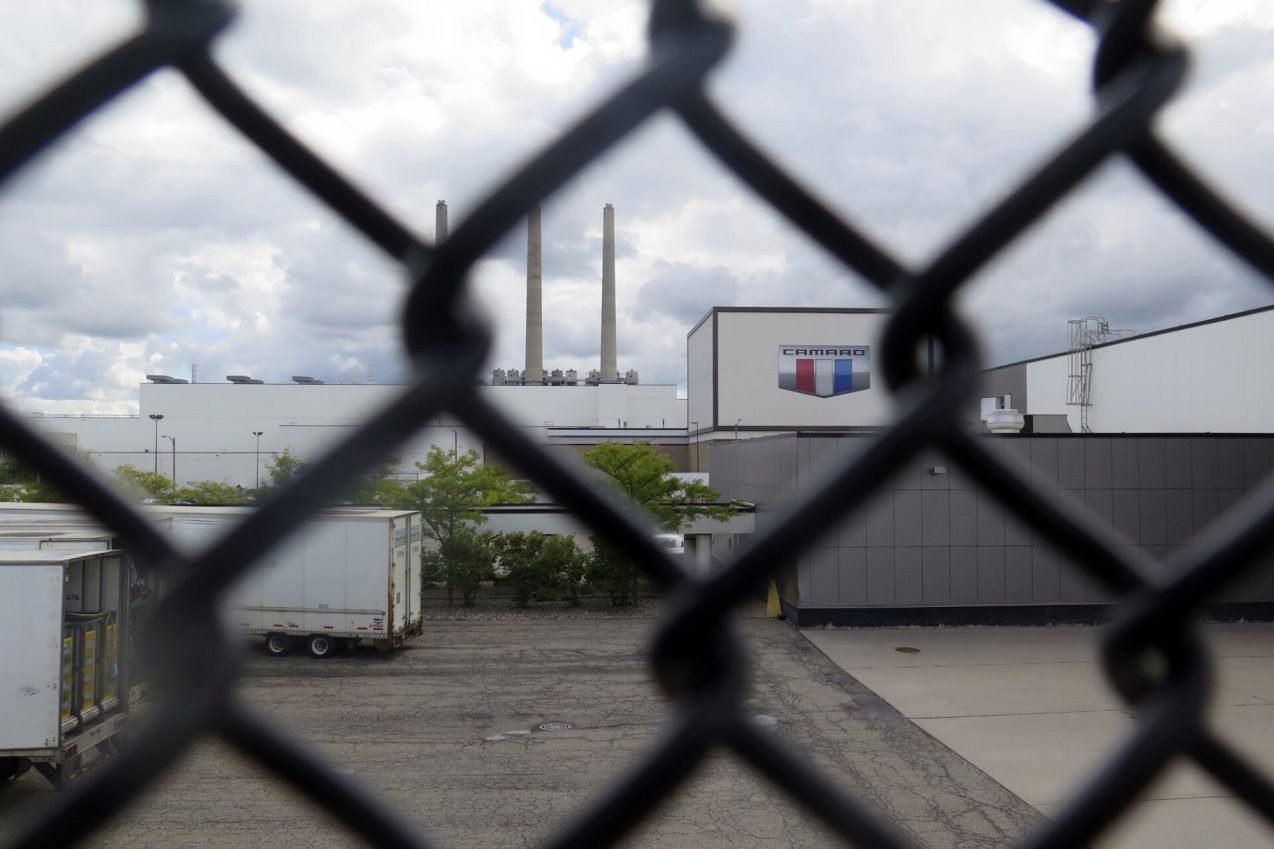 General Motor's Lansing Grand River Assembly plant is seen behind a fence , Tuesday, Sept. 12, 2023, in Lansing, Mich., where workers could soon be on the outside looking in with a potential strike set to begin on Thursday night. (AP Photo/Joey Cappelletti)
General Motor's Lansing Grand River Assembly plant is seen behind a fence , Tuesday, Sept. 12, 2023, in Lansing, Mich., where workers could soon be on the outside looking in with a potential strike set to begin on Thursday night. (AP Photo/Joey Cappelletti)
